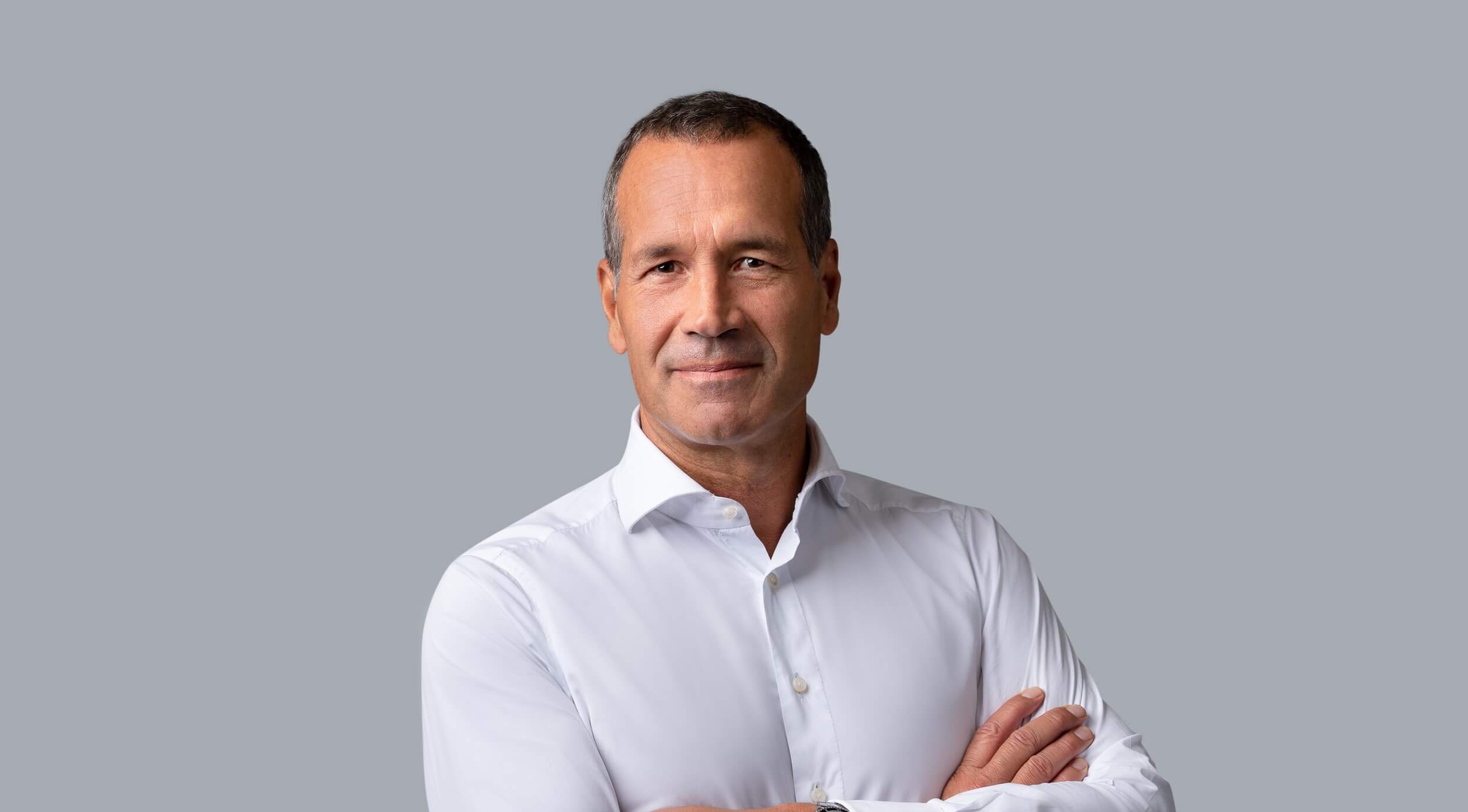A New Roadmap for Healthcare
Anders Petersson is a Managing Partner and leads IK’s Healthcare sector, applying over 20 years of experience at the Firm. In this piece, Anders outlines key industry trends and explores how innovation is driving change in the market.
In 2015, just 12% of the global population was over 60. By 2050, that percentage is expected to soar to 22%, more than two billion people. As the world ages, healthcare costs increase, more than tripling for the elderly compared to their younger counterparts. This puts growing pressure on both government balance sheets and individual incomes, particularly as the complexity of care increases and the range of treatments expands.
Europe is particularly exposed to these trends, with ageing populations and multi-layered healthcare systems. In Germany, for instance, the Healthcare sector accounted for around 8% of GDP throughout the 1980s. But it has risen steadily since then, to almost 13% of GDP by 2022, even as the economy itself more than doubled in size.
As demographic challenges become more pervasive, the need to address them becomes more acute. This is driving developments across the healthcare space, presenting opportunities for well-regarded private equity firms to partner with companies at the forefront of change.
At IK, we have long been involved in this sector, investing in small and mid-cap businesses that foster innovation, enhance efficiency and crucially, help patients to receive better care.
Our focus is on four main subsectors: Med-Tech, Healthcare Services, Healthcare IT and Pharma Services. Within these fields, we focus on specific growth themes, which, we believe, can make a tangible difference with regard to the quality of care on offer and the speed with which that care can be delivered.
Leveraging Technology, Improving Outcomes
Medical technology, or Med Tech, is a substantial market, valued at more than €160 billion in Europe alone. Medical devices feature prominently within this field and many of the larger original equipment manufacturers (“OEMs”) are now outsourcing elements of design and production to contract development and manufacturing organisations, to the benefit of the industry, healthcare providers and end users. We have made several successful investments in this space over recent years, from French implant specialist Marle to German group Klingel Medical Group, which makes high-precision components for implants, endoscopy and robotic surgery.
Both businesses grew significantly during our ownership and we are now pursuing similar value creation paths with current investments. These include Belgium-based Plastiflex, a supplier of high-end customised tube systems to ease respiratory issues and LAP Group in Germany, a leading provider of innovative measurement and projection systems used to enhance radiotherapy care and outcomes.
Healthcare IT is a substantial beneficiary of the outsourcing trend as well. Under pressure on many fronts, including cost inflation and staff shortages, providers are searching for ways to improve their offering while keeping costs under control. High-quality outsourcers can help on both fronts: our 2023 investment in UK-based Medica is a case in point.
With a network of more than 700 specialists, Medica offers teleradiology and imaging services to more than 200 clients worldwide; from hospitals to pharma, biotechnology and medical device groups. A leader in its space, Medica uses technology to drive efficiency across the industries it serves.
Accelerating Delivery
That combination of technological proficiency, outsourcing expertise and focused efficiency is also present within the Pharma Services subsector. Big pharma and biotechnology groups alike are reaping the benefits of contracting out elements of research, manufacturing and in vitro diagnostics to specialist operators. We believe that this is an area offering strong and sustained growth opportunities, as pharma groups face increasing calls to cut costs and accelerate drug development.
To that end, we invested in Swedish biotechnology firm Mabtech in 2019. A specialist in immune monitoring, Mabtech helps its clients to make advances in vaccine, cell and gene therapies. At the time of exit earlier this year, the group had more than doubled sales and EBITDA, broadened its product and service offering and expanded into new markets, including the US and China.
Looking ahead, we see continued opportunities across our chosen subsectors and themes. Ageing populations, stretched budgets and a range of complex medical conditions are driving the need to find innovative solutions that improve productivity, increase quality and drive down costs.
Fuelling Success
The effective use of data is likely to be a critical driver here. From enhanced processing of patient records, to improved patient monitoring, to the acceleration of drug development, proficient harnessing of data can make a measurable difference to care and costs. Traditionally, the Healthcare sector has been slow to adopt new ideas and ways of working. But times are changing, needs are growing and professionals across the market are recognising that innovation and productivity are key to future success.
With three decades of experience and a deep understanding of industry trends, we believe that this is one of the most exciting times to be investing in the Healthcare space. Leveraging our operational expertise and sector-wide network, we will continue to work proactively across the industry, identifying prospects early, building connections and seeking out value-creation opportunities for all our stakeholders.











